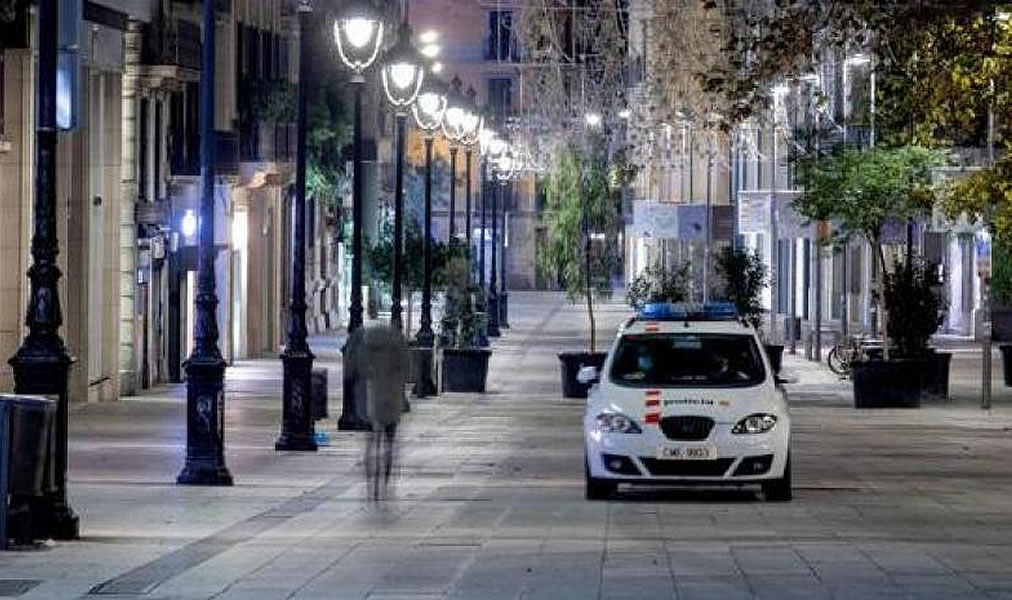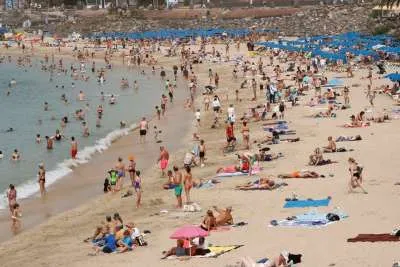Canaries requests Covid certificate whereas Catalunya asks courts for curfew
- 21-12-2021
- National
- Canarian Weekly
On the same day that the Canarian Government sent a request to the TSJC for mandatory use of the Covid Certificate in certain commercial activities in Levels 3 and 4, which many people are voicing negative opinions about, the regional Government of Catalunya, which covers Barcelona, have announced that they want endorsement to reinforce a curfew.
The Generalitat of Catalunya said yesterday that it will reintroduce a curfew across the region due to the intense spread of omicron, and are confident of getting the approval of the Superior Court of Justice of Catalonia (TSJC), which will compare the current situation with other similar ones, and those that have resolutions from both the Constitutional Court, which validated those restrictions on mobility in the second state of alarm.
Government spokesperson, Patricia Plaja, announced that they would once again limit social gatherings to a maximum of 10 people both indoors and outdoors, that nightlife is to close as of Friday Christmas Eve) with a curfew from 1am to 6am, subject to the endorsement of the TSJC.
But the measure has far-reaching resolutions, the most important being the Constitutional Court (TC) ruling on the second state of alarm. In it, the magistrates considered the limitation of the movement of people at night time adjusted to the Law; the restriction of entry and exit of people in different regions; as well as the limitation of the number of people meeting in groups both in public and private spaces and in places of worship.
In the case of the limitation of the freedom of movement of people at night, the court concluded that “it must be considered as an adequate measure to combat the negative evolution of the pandemic, since it faced a risk situation that had been detected as a facilitator of contagions, that of social encounters produced in those hours of the night before the state of alarm.
In their opinion, it was a measure "proportionate to the achievement of a constitutionally legitimate aim of general interest for the social community, such as the preservation of life."
THE CASE OF ARAGON:
The above TC resolution analyzed the measure within the framework of the state of alarm, so the situation is only partially comparable to the current one in which the Government has left the ability to apply sanitary restrictions to the regions themselves, as long as they have the endorsement of their Superior Courts, or if they take it further, that of the Supreme Court.
And this is where the Catalan Government are looking to find more current comparisons, since in August of this year, that the Third Chamber ratified the Order of the Ministry of Health of the Government of Aragon (a region in the northeast of Spain) by which, for a period of 15 days, they were permitted to apply measures to limit mobility at night between 1 and 6 in the morning in the municipalities of Huesca, Jaca, Monzón and Barbastro, for public health reasons to contain the outbreak of coronavirus.
In a judgment of 19 pages, the magistrates upheld the appeal presented by the Government of Aragon against the order of the Superior Court of Justice of the community of July 26th, which denied the requested measures. The Supreme Court considered that the measures "were justified for public health reasons and given the need to prevent the spread of the existing pandemic."
The magistrates also added that the Aragon Public Health Law "allows the application of restrictive measures of fundamental rights" with the aim of "containing the risk and protecting public health."
THE REFUSAL IN TENERIFE:
However, in July, that same Contentious-Administrative Chamber of the Supreme Court dismissed the appeal filed by the Government of the Canary Islands appealing the decision of the Superior Court of Justice (TSJ) which vetoed that a curfew could be imposed between 12.30am and 6am on the island of Tenerife, or alternatively, in the municipalities of the island with a higher COVID incidence rate of more than 100 cases per 100,000 inhabitants.
The Supreme Court considered that the TSJC made its decision in a reasoned manner, and agreed with it that the proposed limitation of freedom of movement lacked justification in view of the concurrent circumstances on the island of Tenerife. Therefore, it concluded that said restrictive measure was not proportional.
However, since then with the sixth wave and a huge increase of cases with a new more contagious variant of the virus, more and more regional governments will go to their local courts with proposals for stricter regulations, so watch this space!
Other articles that may interest you...
Trending
Most Read Articles
Featured Videos
TributoFest: Michael Buble promo 14.02.2026
- 30-01-2026
TEAs 2025 Highlights
- 17-11-2025


























































